The Senate and the 17th Amendment:
See: http://books.google.com/books?id=ll16O9jdfUEC&printsec=frontcover#PPP1,M1
The Road to Mass Democracy: Original Intent and the Seventeenth Amendment, Christopher Hyde Hoebeke
Article. I.
Section. 3.
The Senate of the United States shall be composed of two Senators from each State, chosen by the Legislature thereof for six Years; and each Senator shall have one Vote.
Immediately after they shall be assembled in Consequence of the first Election, they shall be divided as equally as may be into three Classes. The Seats of the Senators of the first Class shall be vacated at the Expiration of the second Year, of the second Class at the Expiration of the fourth Year, and of the third Class at the Expiration of the sixth Year, so that one third may be chosen every second Year; and if Vacancies happen by Resignation, or otherwise, during the Recess of the Legislature of any State, the Executive thereof may make temporary Appointments until the next Meeting of the Legislature, which shall then fill such Vacancies.
18th AMENDMENT: Direct Election of Senators was passed by Congress on May 13, 1912 and ratified on April 8, 1913:
“Article I, section 3, of the Constitution, “The Senate of the United States shall be composed of two Senators from each State, chosen by the Legislature thereof for six Years.”
…is modified by the 17th amendment:
“The Senate of the United States shall be composed of two Senators from each State, elected by the people thereof, for six years…”
The selection of delegates to the Constitutional Convention established the precedent that states could choose Federal officials at a higher level than direct election. Originally, each Senator was to be elected by his state legislature to represent his state, providing one of the many necessary governmental checks and balances. They also expected that Senators elected by state legislatures would be able to concentrate on the business at hand without regional pressure from the populace, aided by a longer term than Representatives.
This process worked without major problems through the mid-1850s, when the American Civil War was in the offing. Due to increasing partisanship and strife, many state legislatures failed to elect Senators for prolonged periods. For example, in Indiana the conflict between Democrats in the southern half of the state and the emerging Republican Party in the northern half prevented an election for two years. The aforementioned partisanship led to contentious battles in the legislatures, as the struggle to elect senators reflected the increasing regional tensions in the lead up to the American Civil War.
After the war, problems still multiplied. In one case in the mid-1860s, the election of Senator John Stockton from New Jersey was contested on the grounds that he had been elected by a plurality rather than a majority in the state legislature.[1] Stockton defended himself on the grounds that the exact method for elections was murky and varied from state to state. To keep this from happening again, Congress passed a law in 1866 regulating how and when Senators were to be elected from each state. This was the first change in the process of senatorial elections. While the law helped, there were still deadlocks in some legislatures and accusations of bribery, corruption and suspicious dealings in some elections. Nine bribery cases were brought before the Senate between 1866 and 1906, and 45 deadlocks occurred in 20 states between 1891 and 1905, resulting in numerous delays in seating senators. Beginning in 1899, Delaware did not send a senator to Washington for four years.
Reform efforts began as early as 1826, when direct election was first proposed. In the 1870s, voters sent a petition to the House for popular election. From 1893 to 1902, momentum increased considerably. Each year during that period, a Constitutional amendment to elect Senators by popular vote was proposed in Congress, but the Senate fiercely resisted. In the mid-1890s, the Populist Party incorporated the direct election of Senators into its platform, although neither the Democrats nor the Republicans paid much notice at the time. Direct election was also part of the Wisconsin Idea championed by Republican progressive Robert La Follette and Nebraska Republican reformer George Norris. In the early 1900s, Oregon pioneered direct election and experimented with different measures over several years until it succeeded in 1907. Soon after, Nebraska followed suit and laid the foundation for other states to adopt measures for direct election.
After the turn of the century, momentum for reform grew rapidly. William Randolph Hearst expanded his publishing empire with Cosmopolitan, which became a respected general-interest magazine and championed the cause of direct election with muckraking articles and strong advocacy of reform. Hearst hired a veteran reporter, David Graham Phillips, who wrote scathing pieces on Senators, portraying them as corrupt pawns of industrialists and financiers. The pieces became a series titled "The Treason of the Senate," which appeared in several monthly issues of the magazine in 1906.[2]
Increasingly, Senators were elected based on state referenda, similar to the means developed by Oregon. By 1912, as many as 29 states elected Senators either as nominees of party primaries or in conjunction with a general election. As representatives of a direct election process, the new senators supported measures that argued for legislation, but in order to achieve total reform, a Constitutional amendment was required. In 1911, Senator Joseph Bristow from Kansas offered a resolution, proposing an amendment. The idea enjoyed strong support from Senator William Borah of Idaho, himself a product of direct election. Eight Southern Senators and all Republican Senators from New England, New York, and Pennsylvania opposed Bristow's resolution. The Senate approved the resolution largely because of the senators who had been elected by state-initiated reforms, many of whom were serving their first term, and therefore may have been more willing to support direct election. After the Senate passed the amendment, the measure moved to the House.
The House initially fared no better than the Senate in its early discussions of the proposed amendment. In the summer of 1912 the House finally passed the amendment and sent it to the states for ratification. The campaign for public support was aided by Senators such as Borah and political scientist George H. Haynes, whose scholarly work on the Senate contributed greatly to passage of the amendment.[1]
The last state needed to ratify was Connecticut, which ratified it on April 8, 1913, a year and a half prior to the 1914 Senate election in November of 1914.
[edit] Effect
The Seventeenth Amendment restates the first paragraph of Article I, § 3 of the Constitution and provides for the election of senators by replacing the phrase "chosen by the Legislature thereof" with "elected by the people thereof." Also, it allows the governor of each state, if authorized by that state's legislature, to appoint a senator in the event of an opening, until an election occurs.
The Seventeenth Amendment did not affect the restriction in Article I, § 4, cl. 1, which prohibits the Congress from exercising its power to "make or alter" state regulations of elections in order to determine where Senators must be chosen. When the State Legislatures chose the Senators, allowing the Congress to regulate the "places of choosing Senators" would have allowed the Congress to essentially stipulate where the State's Legislature had to meet, at least for the purposes of choosing its Senators, which would have been inconsistent with State sovereignty.
Repeal the 17th Amendment
Author: Chris 31
Oct
2007
Though I’m not the resident constitutional scholar, I’m going to write about the 17th Amendment to the United States Constitution anyways. The U.S. Constitution, as originally framed in Article I, Section 3, provided for U.S. Senators to be elected by state legislators. This gave each state direct representation in the legislative branch so as to deter the usurpation of powers that were constitutionally reserved to the states or to the people as stated in the 10th Amendment, the last Amendment to the Bill of Rights. The 10th Amendment says that the powers not delegated to the United States by the Constitution, nor prohibited by it to the States, are reserved to the States respectively, or to the people.
Then came along the 17th Amendment. The Seventeenth Amendment (providing for direct, popular election of U.S. Senators) took away from state governments their Constitutional role of indirect participation in the federal legislative process; the first loss of “States Rights” we often here and write about. We need to return to state legislatures the function of electing the U.S. Senate. By doing this, it would return the U.S. Senate to being a body that represents the legislatures of the several states on the federal level and, thus, a tremendously vital part of the designed checks and balances of power that our Constitution originally provided.
When senators represented states as states, rather than being super House members as they are now, they zealously protected states’ rights. Then the usurpation of the intent of the framers (ratification of 17th Amendment) has lead to the modern populist movements, led by politicians with vast political power, be it by their actions, their choice of special interests, or those that are communicated by the media. Ironically, one of the reasons that the 17th Amendment was born was the perception that the election of senators by state legislatures made them more susceptible to corruption by special interests. Thus in 1913 the 17 Amendment was ratified.
It is no coincidence that the sharp rise in the size and power of the federal government starts in this year as the the 16th amendment, establishing a federal income tax, was ratified that same year. Prior to the 17th amendment, senators resisted delegating power to Washington in order to keep it at the state and local level. As a result, the long term size of the federal government remained fairly stable during the pre-Seventeenth Amendment era. Was 1913 the beginning of the end?
http://www.lewrockwell.com/dilorenzo/dilorenzo93.html
Repeal the Seventeenth Amendment
by Thomas J. DiLorenzo
Every once in a blue moon someone in Congress (usually Congressman Ron Paul of Texas) proposes a law or resolution that would actually improve the prospects for human liberty and prosperity. It’s rare, but not nonexistent. One such case is Senate Joint Resolution 35, introduced into the U.S. Senate on April 28, 2004, which was recently brought to my attention by Laurence Vance.
S.J. Res. 35 reads: "Resolved . . . . The seventeenth article of amendment to the Constitution of the United States is hereby repealed." That’s Section 1. Section 2 reads that "The Senate of the United States shall be composed of two Senators from each State, chosen by the legislature thereof, for six years . . ."
This was the original design of the founding fathers; U.S. senators were not directly elected by the voting public until 1914. Thus, S.J. Res. 35 proposes a return to founding principles and is therefore a most revolutionary idea. A good overview of the history of the Seventeenth Amendment is Ralph A. Rossum’s book, Federalism, the Supreme Court, and the Seventeenth Amendment.
Rossum correctly points out that the system of federalism or "divided sovereignty" that the founding fathers created with the Constitution was never intended to be enforced by the Supreme Court alone. Congress, the president, and most importantly, the citizens of the states, were also to have an equal say on constitutional matters.
The citizens of the states were to be represented by their state legislatures. As Roger Sherman wrote in a letter to John Adams: "The senators, being . . . dependent on [state legislatures] for reelection, will be vigilant in supporting their rights against infringement by the legislative or executive of the United States."
Rossum also quotes Hamilton as saying that the election of senators by state legislatures would be an "absolute safeguard" against federal tyranny. George Mason believed that the appointment of senators by state legislatures would give the citizens of the states "some means of defending themselves against encroachments of the National Government."
Fisher Ames thought of U.S. senators as "ambassadors of the states," whereas Madison, in Federalist #62, wrote that "The appointment of senators by state legislatures gives to state governments such an agency in the formation of the federal government, as must secure the authority of the former." Moreover, said Madison, the mere "enumeration of [federal] powers" in the Constitution would never be sufficient to restrain the tyrannical proclivities of the central state, and were mere "parchment barriers" to tyranny. Structural arrangements, such as the appointment of senators by state legislatures, were necessary.
State legislatures did not hesitate to instruct U.S. senators on how to vote. In fact, the very first instruction that was given to them was to meet in public! The Virginia and Kentucky Resolves of 1798 (see William Watkins, Reclaiming the American Revolution) were the work of state legislatures that instructed their senators to oppose the Sedition Act, which essentially made it illegal to criticize the federal government.
State legislatures were instrumental in Andrew Jackson’s famous battle with the Bank of the United States (BUS), which ended with the Bank being de-funded and replaced by the Independent Treasury System and the era of "free banking" (1842–1862). State legislatures throughout the U.S. instructed their senators to oppose the BUS in the senate. Senator Pelog Sprague of Maine was forced to resign in 1835 after ignoring his legislature’s instructions to vote against the Bank. The U.S. Senate voted to censure President Andrew Jackson for opposing the BUS, but the states responded by forcing seven other senators to resign for taking part in that vote. (It seems that it’s not only twenty-first century Republicans who run for office by calling Washington, D.C. a cesspool, and then thinking of it as more like a hot tub once they get there).
The founding fathers understood that it would never be in the Supreme Court’s self-interest to protect states’ rights. Rossum quotes the anti-federalist writer "Brutus" on this point:
It would never be in the self-interest of the Court to strike down federal laws trenching on the inviolable and residuary sovereignty of the states, because every extension of power of the general legislature, as well as of the judicial powers, will increase the powers of the courts.
"Brutus’ also pointed out that with increased powers of the courts would likely come increased compensation for federal judges.
The adoption of the Seventeenth Amendment in 1913 (along with the income tax and the Fed) was a result of the deification of "democracy" that began with the Union victory in the War to Prevent Southern Independence. The war was fought, said Lincoln at Gettysburg, so that "government of the people, by the people, for the people" should not perish from the earth. This of course was absurd nonsense, but Lincoln’s silver-tongued rhetoric was apparently persuasive enough to those residing north of the Mason-Dixon line.
The direct election of senators was said to be more democratic, and therefore would reduce, if not end, corruption. There was a good bit of corruption involved in the election of senators, but the source of the corruption was: democracy!
As Rossum recounts, in 1866 a new federal law was passed that mandated for the first time how the states were to appoint senators. First, a voice vote would be taken in each house. If there was no overwhelming choice, then a concurrent vote would be taken. This process revealed information about voting preferences to minority cliques within the legislatures, who then knew who they had to support or oppose. The end result was frequent gridlocks (71 from 1885 to 1912 alone). The deadlocks were inevitably ended by bribery. Thus "democracy, in the form of the 1866 law, led to the bribery, so that the natural "cure" for the problem was: More democracy!
The Seventeenth Amendment was one of the last nails to be pounded into the coffin of federalism in America. The citizens of the states, through their state legislators, could no longer place any roadblocks whatsoever in the way of federal power. The Sixteenth Amendment, which enacted the income tax in the same year, implicitly assumed that the federal government lays claim to all income, and that citizens would be allowed to keep whatever their rulers in Washington, D.C. decided they could keep by setting the tax rates. From that point on, the states were only mere appendages or franchises of the central government.
The federal government finally became a pure monopoly and citizen sovereignty became a dead letter. Further arming itself with the powers of legal counterfeiting (the Fed) in the same year, the federal government could ignore the wishes of great majority of the citizens with reckless and disastrous abandon, as it did with its entry into World War I just a few years later.
If Americans ever again become interested in living in a free society, one of their first orders of business should be the repeal of the Seventeenth Amendment.
May 17, 2005
Thomas J. DiLorenzo [send him mail] is the author of The Real Lincoln: A New Look at Abraham Lincoln, His Agenda, and an Unnecessary War, (Three Rivers Press/Random House). His latest book is How Capitalism Saved America: The Untold Story of Our Country’s History, from the Pilgrims to the Present (Crown Forum/Random House, August 2004).
Copyright © 2005 LewRockwell.com
Thomas DiLorenzo Archives at LRC
E-mail Author
Author Archive
Send to a Friend
Version
May 12, 2004, 7:48 a.m.
Repeal the 17th Amendment
It’s where big government begins.
There is only one time when a U.S. senator is really free to speak the truth — when he’s announced his retirement. Since he no longer has to worry about raising money, pandering to voters, or retaliation from his colleagues, he can say what he really thinks about issues no other member of the Senate will discuss. For this reason, it is worth listening to Sen. Zell Miller, Democrat of Georgia, who recently spoke a truth that no senator except a retiring one would dare say.
On April 28, Sen. Miller, the last genuinely conservative Democrat we will likely ever see in the Senate, laid the blame for what ails that august body at the door of the 17th amendment to the Constitution. This is the provision that provides for the popular election of senators.
Few people today know that the Founding Fathers never intended for senators to be popularly elected. The Constitution originally provided that senators would be chosen by state legislatures. The purpose was to provide the states — as states — an institutional role in the federal government. In effect, senators were to function as ambassadors from the states, which were expected to retain a large degree of sovereignty even after ratification of the Constitution, thereby ensuring that their rights would be protected in a federal system.
The role of senators as representatives of the states was assured by a procedure, now forgotten, whereby states would “instruct” their senators how to vote on particular issues. Such instructions were not conveyed to members of the House of Representatives because they have always been popularly elected and are not expected to speak for their states, but only for their constituents.
When senators represented states as states, rather than being super House members as they are now, they zealously protected states’ rights. This term became discredited during the civil-rights struggle of the 1960s as a code word for racism — allowing Southern states to resist national pressure to integrate. But clearly this is an aberration. States obviously have interests that may conflict with federal priorities on a wide variety of issues that defy easy ideological classification. Many states, for example, would probably enact more liberal laws relating to the environment, health, and business regulation if allowed by Washington.
Two factors led to enactment of the 17th amendment. First was the problem that many state legislatures deadlocked on their selections for the Senate. The upper house and the lower house could not agree on a choice, or it was prohibitively difficult for one candidate to get an absolute majority in each house (as opposed to a plurality), which was required by federal law. Some states went without representation in the Senate for years as a consequence.
The second problem involved a perception that the election of senators by state legislatures made them more susceptible to corruption by special interests. The Hearst newspapers were a major force arguing this point in the early 1900s.
The pressure of public opinion eventually forced the Senate to approve a constitutional amendment changing the election of senators to our current system of the popular vote. The fact that many states (such as Oregon) had already adopted a system whereby legislatures were required to choose senators selected by popular vote was ignored.
The 17th amendment was ratified in 1913. It is no coincidence that the sharp rise in the size and power of the federal government starts in this year (the 16th amendment, establishing a federal income tax, ratified the same year, was also important). As George Mason University law professor Todd Zywicki has noted, prior to the 17th amendment, senators resisted delegating power to Washington in order to keep it at the state and local level. “As a result, the long term size of the federal government remained fairly stable during the pre-Seventeenth Amendment era,” he wrote.
Prof. Zywicki also finds little evidence of corruption in the Senate that can be traced to the pre-1913 electoral system. By contrast, there is much evidence that the post-1913 system has been deeply corruptive. As Sen. Miller put it, “Direct elections of Senators … allowed Washington’s special interests to call the shots, whether it is filling judicial vacancies, passing laws, or issuing regulations.”
Sen. Miller also lays much of the blame for the current impasse on confirming federal judges at the door of the 17th amendment. Consequently, on April 28 he introduced S.J.Res. 35 in order to repeal that provision of the Constitution.
Over the years, a number of legal scholars have called for the repeal of the 17th amendment. An excellent summary of their arguments appears in Ralph Rossum's book, Federalism, the Supreme Court and the Seventeenth Amendment. They should at least get a hearing before Zell Miller departs the Senate at the end of this year.
— Bruce Bartlett is senior fellow for the National Center for Policy Analysis. Write to him here.
Subscribe to:
Post Comments (Atom)





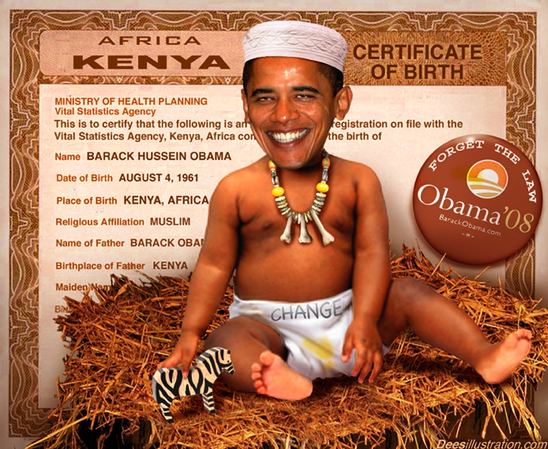









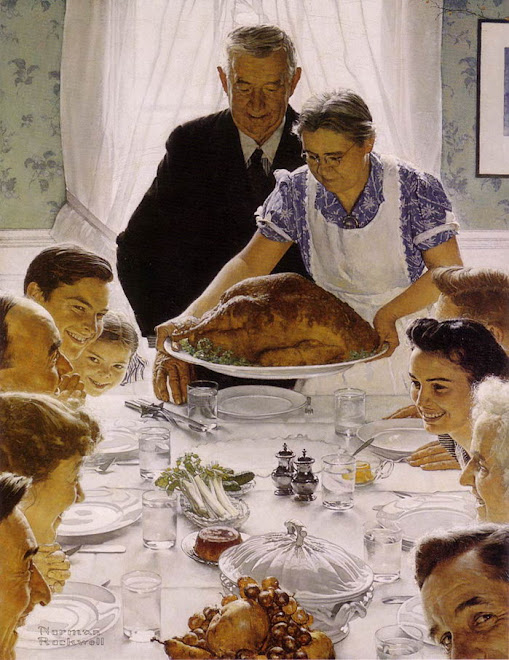













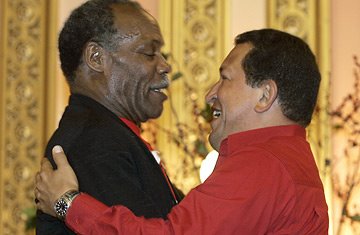


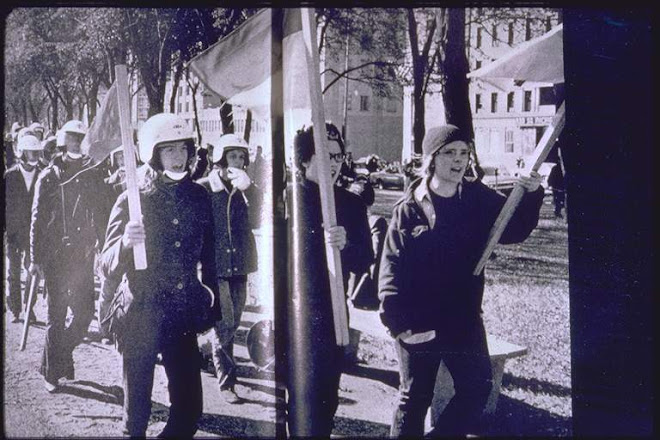
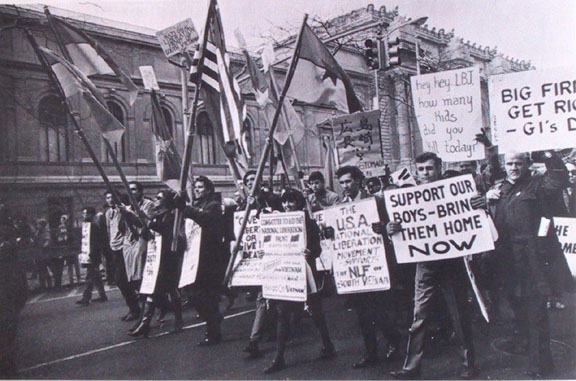
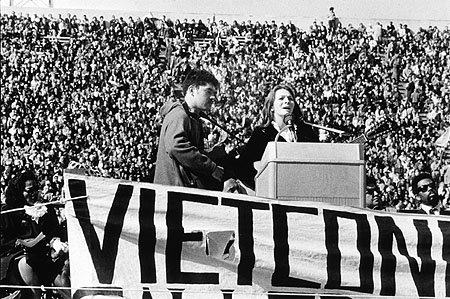


















No comments:
Post a Comment